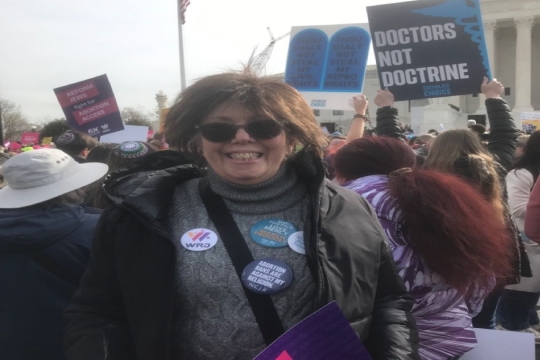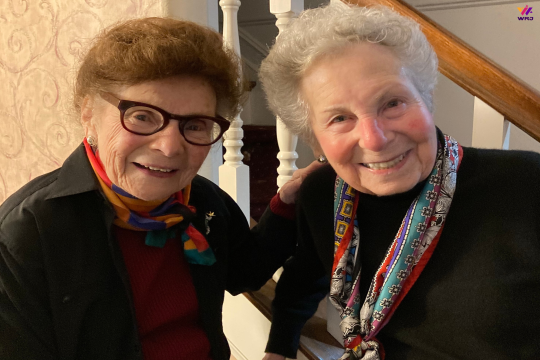
When I began to read Parashah Va-eira, I immediately recognized it. It is one of the most well-known stories in the whole Bible. The parashah begins with God telling Moses that God has remembered the covenant that God made with Moses’ forefathers and has heard the moaning of the Israelites. God tells Moses to go to Pharaoh and demands that he let the Israelites go. As we all know from the story, Moses goes to Pharaoh, Pharaoh refuses, and God unleashes the first plague. In our parashah, this cycle continues through many more plagues. The parashah also includes the genealogy of Reuben, Simeon, Levi, and their descendants.
As I did some research to prepare to write this D’var Torah, I learned that the Israelites were not spared from the first five plagues – turning water into blood, frogs, lice, flies, and pestilence. These plagues did great damage to the land and its people and were meant to demonstrate to both the Egyptians and Israelites God’s ability to control nature and perform such miracles.
Let’s consider the plagues as signs and marvels – evidence that the God of the Israelites was the one true God, powerful enough to save the people from the slavery they were enduring. God instructed Moses to tell the Israelites that God would free them and make them God’s people and bring them to the promised land of Canaan. And yet, the Israelites were not convinced. They were so downtrodden and beaten down that they had no hope and could not believe that they could be saved.
I remember reading this story over and over when I was young. I remember it, of course, as the centerpiece of our family seder, when I would ask my mother “Why didn’t they just run away when they had the chance? Why didn’t they help Moses and Aaron?” “Didn’t they worry about their children having to work so hard?” My mother had no answers for me. She just sighed and said that maybe someday I would understand. She told me that sometimes people lost all hope and that they were blind to the possibilities around them.
As I get older (and maybe a little wiser) I think I am beginning to understand. As many of you know, I live in the Great State of Texas. Among the draconian laws passed during our many special sessions, including a bill that outlaws the teaching of Critical Race Theory and insists that school districts teach “both sides of history,” the most egregious one concerns reproductive justice. Senate Bill 8 (SB8) bans abortion after the detection of an unborn child's heartbeat, which normally occurs after about six weeks of pregnancy. Of course, that doesn’t give prospective parents much time to realize that there is a pregnancy, much less make important decisions. This law, which went into effect September 1, has effectively ended a woman’s right to choose the best course of action for herself and her unborn child. Jewish law is quite clear on this topic – Jewish tradition teaches that existing life should take precedence over potential life and that a woman’s life takes precedence over a fetus. Like many of my friends, I am angry, frustrated, and saddened by this bill and by the rhetoric that surrounds it. In a state whose legislators refuse to support Medicaid expansion, the idea that they are concerned with the rights of babies is laughable.
As a member of WRJ and the chair of RAC-TX, I am used to doing something when a social justice issue arises. I have written letters, called senators, and joined in marches. I have always believed that silence is complicity. When SB8 passed and no legal recourse seemed possible, I felt stuck – frozen in place, unable to do anything to get out of the narrow place in my heart and head. I’m sure you all know that narrow, hard place - the place that seems to have a voice of its own, telling you that you are small and weak and powerless and that you can’t do anything about (insert your own thing here) and so why try? Sounds like our friends the Israelites, doesn’t it? They were willing to stay as slaves rather than let hope into their hearts and believe in the signs and marvels that were in front of them.
I love quotes, and I am always on the lookout for good ones. I highlight quotes in books, ask Siri to save them in my phone if I see one while walking or driving, and cut and paste them from websites and emails. Sometimes quotes seem to be a sign from the Divine because they pop up just when I need them. The other day, after reading the newspaper, with article after article about the results of white supremacy, racism, and hatred, and drowning my sorrows in a cup of coffee, I took the pandemic puppy for a walk and saw a young man near my house. As he walked by me, I glanced at his t-shirt and read what was printed there: “Hope is in the hard places.” I followed him for a few blocks, reading and rereading that quote.
When I got home, I promptly took out all my colored pens and wrote the quote on a sticky note, which now lives on my computer. “Hope is in the hard places.” What an extraordinary idea – that rather than be defeated by those hard places, we can find hope there. Hope is about believing that good will eventually triumph and that there are decent, kind people out there who want to make a difference in the world. Hope is what allows us to feel joy in the midst of pain. Hope is believing that even though all the rhetoric says otherwise, your actions can make a difference. Hope, indeed, is found in the hard places.
That day, the day I found that quote, I vowed to continue to fight for a woman’s right to control her own body and continue the fight for fair elections and expanded voting opportunities. I vowed to continue being an upstander – someone who speaks up and acts when faced with injustice. Unlike those Israelites of so long ago, I vowed to stop listening to that voice in my head telling me I was small and powerless.
In January, WRJ is presenting a webinar about the intersection of reproductive rights and voting rights, a topic which is a focus of my work with RAC-TX. Register here and join me in learning from outstanding speakers about how you can get involved in this important work.
We Jews are lucky. We get two opportunities to reset our lives. One occurs during the High Holidays when we consider our actions towards others and make amends, and the other on the secular New Year when we can consider more personal goals and intentions. On this, the last Shabbat of 2021, I have set my intention for 2022. Each morning, as I drink my morning coffee and go through the newspaper, I will remember that young man and his t-shirt with the quote that brought me out of my personal narrow place – “hope is in the hard places.” I will keep that thought close to my heart as I continue to work for a world of respect and dignity for everyone. My hope is that you, too, will keep this quote close to your heart and join me in this holy work.
Related Posts

Andrea Stillman: A WRJ Leadership Spotlight


